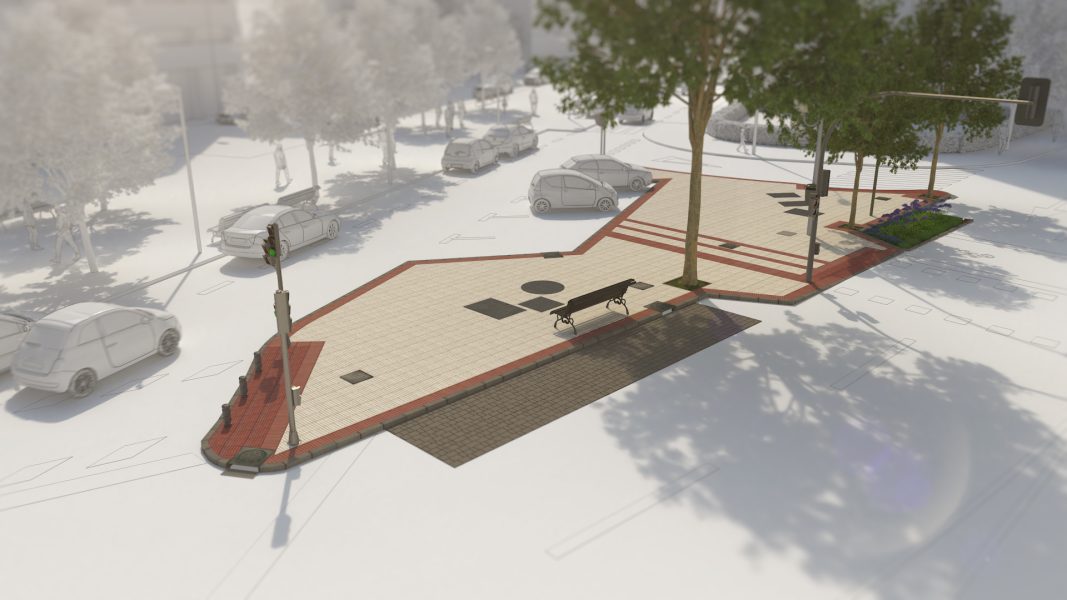20 March 2024
for Madrid Nuevo Norte

Madrid City Council, working in collaboration with Madrid Nuevo Norte, has launched a pilot project that is already under way to evaluate the best techniques for drainage and the removal of pollutants from rainwater that runs along the streets within this development. This initiative is part of the comprehensive responsible water management strategy developed by Madrid Nuevo Norte, designed to minimise water consumption. A key component of this strategy is the proposed incorporation of sustainable urban drainage systems into the urbanisation projects.
This pilot project is the first of its kind in Madrid. It engages all areas of urban development and management encompassed by the Madrid Nuevo Norte development, and work has already begun on an area nearby, at the junction between Calle Agustín de Foxá and Calle Mauricio Legendre. The installation work will take around 13 weeks to complete. The pilot study will then run for a year to collect and analyse samples in order to monitor the results.
This initiative is in line with the targets and actions of the DEMO 360 Climate Action Demonstration Area, a space promoted by Madrid City Council and the Chamartín CBD Management Committee, to implement the most advanced sustainability measures, although in this case the results will also be used to define sustainable drainage techniques to be used throughout Madrid Nuevo Norte.
Sustainable Urban Drainage Systems (SuDS), such as porous pavements, rain gardens and drainage ditches, are solutions that capture and temporarily store rainwater so that it can be returned to the subsoil, with a view to restoring the natural water cycle, facilitating the use of this water and avoiding overloading the sewage system.
The ultimate aim pursued by Madrid City Council and Madrid Nuevo Norte with this pilot project is to collect, clean and filter not only water from pavements and parks, but also surface run-off water from roads and car parks, which could reduce the amount of water channelled through the sewage system by up to 70%.
The challenge tackled by this study is to see whether, by forcing rainwater through the proposed drainage systems, they can achieve a significant reduction in levels of pollution and contamination that build up in these waters and, therefore, they can be returned to the subsoil, thereby restoring the natural water cycle, or they can be used subsequently as alternative water resources.
To this end, the initiative includes the installation of two drainage systems, chosen for the simplicity of construction and their capacity to be integrated into the urban environment: a bioretention rain garden and permeable pavement surface. Rainwater that passes through both systems will be subsequently analysed, comparing the quality in a laboratory with that of rainwater that has not been treated in any way.